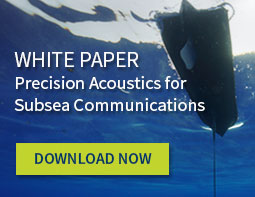The Economist World Ocean Summit 2017
Liquid Robotics — February 28, 2017
In this increasingly polarized world it seems so often that we think in polemical terms about economic growth versus environment, right versus left, corporations versus tree huggers. What’s interesting about The Economist’s World Ocean Summit is the way it attempts to break this dichotomy. CEOs, government leaders, conservationists, activists all get together to talk about what they call the Blue Economy.
In June 2015, Liquid Robotics was included as a finalist in the Blancpain/Economist Ocean Innovation Challenge. At that conference, in Cascais Portugal, a central topic was the overfishing of our oceans that’s partly due to illegal, unregulated, and unreported (IUU) activity. The interesting, and hopeful, observation made perhaps most clearly by UCSB Professor Chris Costello, is that optimum fisheries management for the economy is also near optimum for the environment. He spoke of a triple bottom line where profits for fishermen, food for consumers and environmental health all benefit from the same actions; managing fish take to coincide with maximum sustainable yield. The practice of overfishing is bad for everyone, and as this is increasingly being understood, fisheries management practices are improving. Regulation, monitoring and enforcement are needed, as is accurate stock assessment—areas where Wave Gliders can really help.
Liquid Robotics won the innovation challenge in Cascais, and was invited back for the 2017 conference last week in Bali. This time fishery health was also a big focus, but the new leading topic was plastic pollution. Here the win-win solution isn’t quite as clear—but it does seem to be there. Plastic pollution is waste, and excessive waste is the definition of an inefficient system. By moving to a more circular economy, there should be both economic efficiency and environmental gain.
What is clear is that the amount of plastic pollution in the ocean is startling, and disgusting. Around the world, social movements are putting the spotlight on this extreme international litter problem, and many plastic companies are responding by taking a variety of steps to keep plastic products out of the ocean. The most memorable for me was Bye Bye Plastic Bags, a movement by two Balinese girls age 14 and 16 that aims to rid Bali of single use plastic bags by 2018. In this case, I’m not sure that Wave Gliders can help, but I did make a donation to the Balinese girls, and I picked up a few plastic bottles when I went swimming in the ocean.
I leave Bali feeling honored to be a part of this group of leaders dedicated to tackling some of the most pressing challenges in the ocean, from fishery health to plastic pollution and beyond. And above all, I leave hopeful that we as a global community can continue to collaborate and build solutions that solve for both economic growth and environmental conservation.
